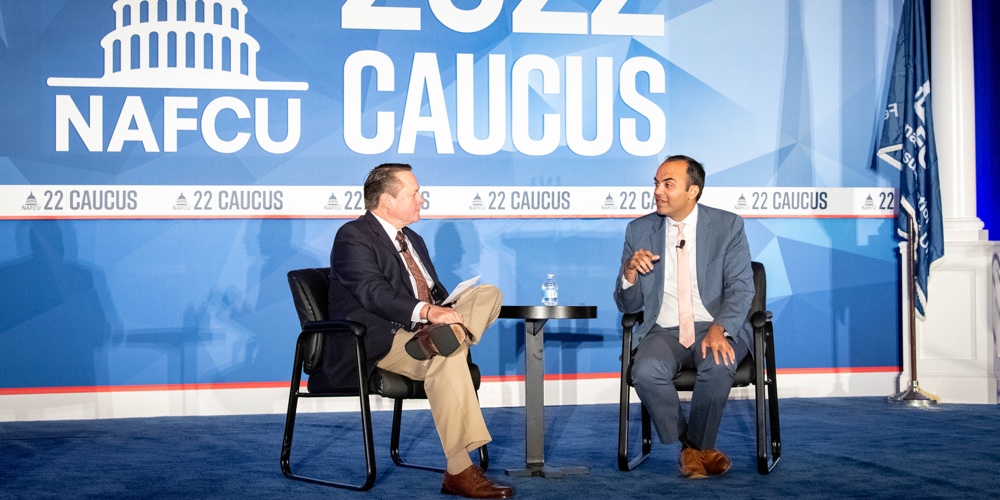CFPB Director Chopra, NAFCU’s Berger discuss CU interests during Caucus
 Dan Berger with CFPB Director Rohit Chopra at the 2022 Congressional Caucus. (NAFCU photo)
Dan Berger with CFPB Director Rohit Chopra at the 2022 Congressional Caucus. (NAFCU photo)
CFPB Director Rohit Chopra joined NAFCU President and CEO Dan Berger for a fireside chat during NAFCU’s Congressional Caucus yesterday. Berger asked Chopra several questions that are of heightened interest for credit unions, including questions on Regulation E, oversight on non-depository institutions, and overdraft and credit card fees.
Berger asked Chopra to explain his thinking on Regulation E and the disproportional burden placed on credit unions rather than peer-to-peer (P2P) payment providers. Chopra discussed the Bureau’s concerns around customer service and liability, noting that the Bureau has been heavily focused on this issue, sending inquiries to the Big Tech payment providers to better understand how they’re adhering to existing regulations to better inform future movement on the issue. In December, NAFCU submitted comments to the CFPB regarding its inquiry into these payment platforms. When discussing the timing of potential guidance or rulemaking, Chopra noted that “we don’t have a clock, but we want to move on it.”
Continuing the conversation into oversight of non-depository financial institutions, Chopra highlighted that while the Bureau can’t license or charter, at a minimum he wants to ensure compliance with existing law so that there’s some degree of parity, including working with states to ensure they’re also playing their role as a watchdog. When discussing larger participant authority, Chopra said their work is limited but the Bureau is watching big tech firms “chomping at the bit” to get into the financial services industry, noting that it’s the “holy grail” to collect data that can identify and influence consumer spending habits. Chopra continued to note that this approach is a much different mindset than the history of banking services, which has been “more about protecting customer information and not comingling financial services with other commercial enterprises.”
continue reading »
